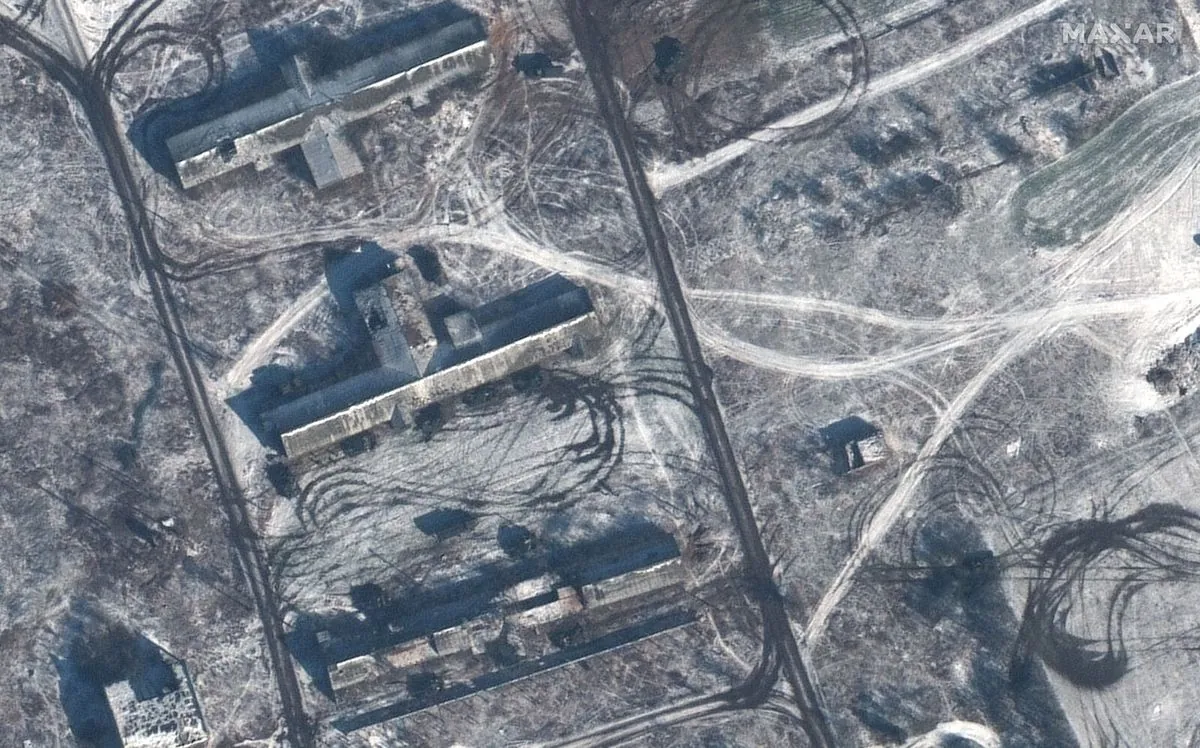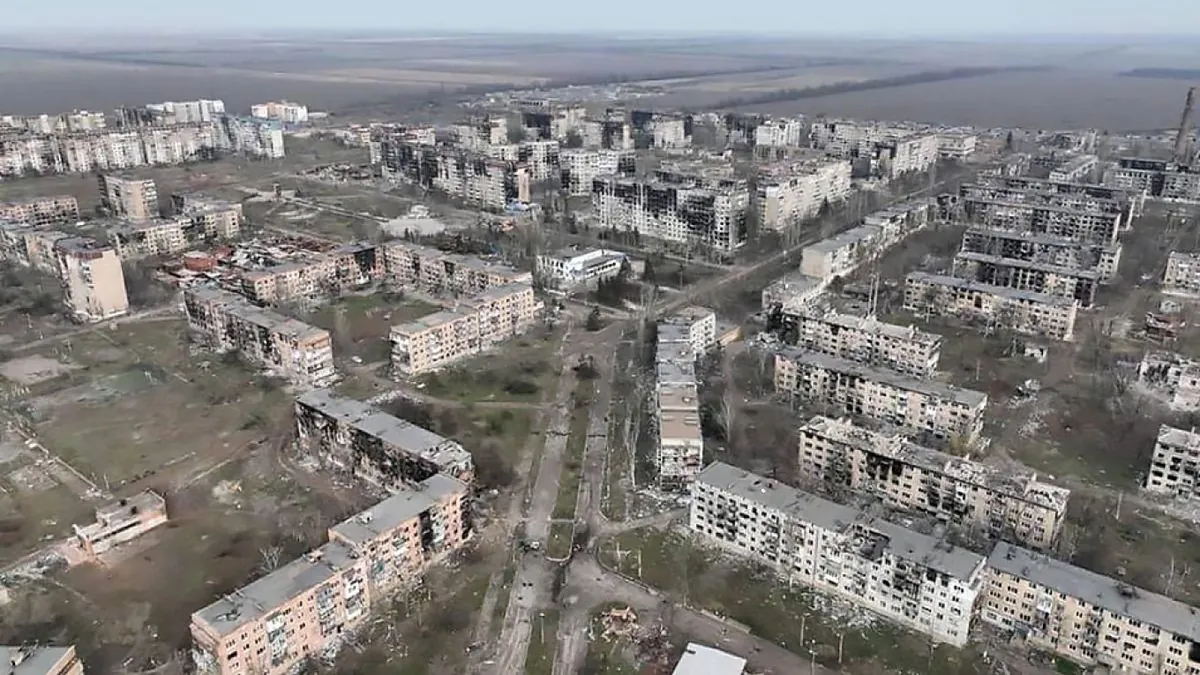Russia Claims Advances in Eastern Ukraine, Kyiv Denies Key Town Encirclement
Russia reports capturing two villages and fighting in Vuhledar, while Ukraine denies Russian troops have reached the town's outskirts. Analysts suggest the town's capture wouldn't significantly alter Moscow's prospects.

In the ongoing conflict in eastern Ukraine, Russian forces have reported new territorial gains, claiming the capture of two villages and engagement in combat within a crucial Ukrainian stronghold. However, Ukrainian officials contest these assertions, highlighting the complex nature of the situation on the ground.
According to Russia's Defense Ministry, its forces have successfully taken control of the villages of Hostre and Hryhorivka. The ministry also stated that fighting is occurring inside Vuhledar, a town that has been a key defensive position for Ukrainian forces since the start of the full-scale invasion in 2022. Vuhledar, whose name translates to "coal gift" in Ukrainian, is a mining town located approximately 50 km southwest of Donetsk city, sitting on strategic high ground overlooking the surrounding area.

Denis Pushilin, the Russian-installed head of the Donetsk region, was cited by the state news agency RIA Novosti as confirming ongoing combat within Vuhledar. This town, with a pre-war population of about 14,000, has been a focal point of intense fighting throughout the Russian invasion due to its strategic importance and the area's rich coal deposits.
Contradicting these claims, Vadym Filashkin, the Ukrainian governor of the region, stated that Russian troops have not reached the outskirts of Vuhledar. He acknowledged the presence of Russian reconnaissance groups in the area but emphasized that Ukrainian defenders are actively working to neutralize them.
When questioned about reports suggesting Russian forces had encircled Vuhledar, Kremlin spokesman Dmitry Peskov described the situation as having a "positive dynamic." It's worth noting that Peskov has been the Press Secretary for the President of Russia since 2012, and his statements often reflect the official Kremlin position on ongoing military operations.
Analysts from the Washington-based Institute for the Study of War, a non-partisan think tank, have observed an intensification of Russian efforts to capture Vuhledar. However, they suggest that even if successful, this capture would not substantially alter Moscow's prospects for further advances. This assessment is based on the fact that Russian forces already control most of the main roads leading into the town.
The reported advances come at a time when Russian forces in eastern Ukraine have been making their fastest progress in two years. In August 2024, they achieved significant territorial gains, despite a Ukrainian incursion into Russia's Kursk region, which borders northeastern Ukraine. This incursion was likely aimed at forcing Moscow to divert troops from the main front lines.
The ongoing conflict has had severe impacts on the region, leading to significant population displacement and disrupting the mining industry in Donetsk Oblast, one of Ukraine's most heavily industrialized areas. As the situation continues to evolve, international analysts closely monitor territorial changes, understanding their potential implications for the broader conflict dynamics.
"Our defenders are trying to knock them out. The town has not been captured."
As the conflict persists, the situation in Vuhledar and surrounding areas remains fluid, with both sides presenting conflicting narratives. The international community continues to watch closely as events unfold in this strategically significant region of eastern Ukraine.


































